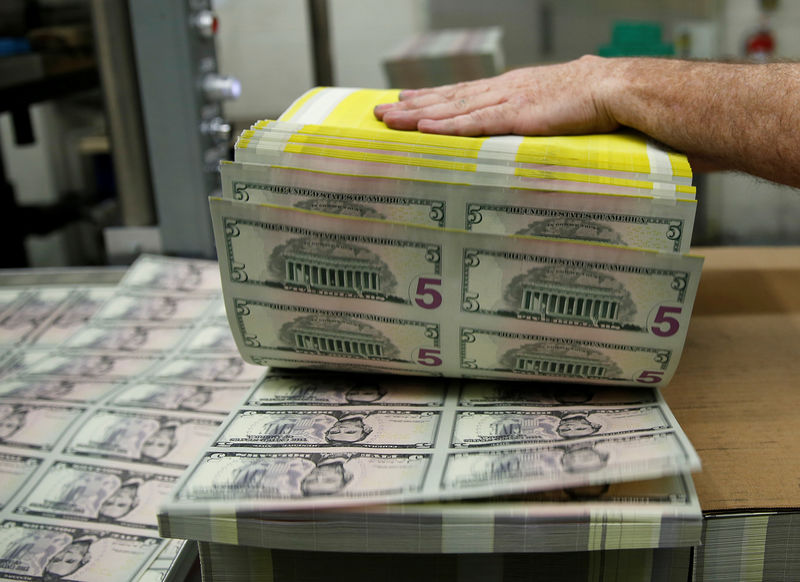By Peter Nurse
Investing.com - The dollar edged lower in early European trade Thursday as renewed U.S. stimulus hopes boosted risk appetite, prompting gains in equity markets and risker currencies.
At 2:55 AM ET (0655 GMT), the Dollar Index, which tracks the greenback against a basket of six other currencies, was down 0.1% at 93.562, while USD/JPY was largely flat at 105.97.
Elsewhere, EUR/USD climbed 0.2% to 1.1778, GBP/USD rose 0.2% to 1.2948, while the risk-sensitive AUD/USD climbed 0.3% to 0.7160.
This move followed President Donald Trump rowing back from previous comments, and tweeting Wednesday he was ready to sign off on piecemeal measures, including support for individuals, small businesses and airlines.
That said, a great deal of volatility has been injected into the foreign exchange market of late as uncertainty has increased - there has been a second wave of Covid-19 cases (France and Spain posted record numbers of new infections on Wednesday), the economic recovery has become more patchy and the important U.S. elections and Brexit deadlines are approaching.
“We think that uncertainty will prevail for now, and risk appetite could be under pressure over the coming month, as is often the case ahead of U.S. presidential elections,” said analysts at Nordea, in a research note. “Beyond the elections, we could see a rebound in risk appetite, irrespective of the winner – assuming that we have a clear winner, that is.”
With this in mind, Nordea sees a clear risk of EUR/USD trading above $1.25 in 2021, and this dollar weakness is likely to be broad-based against most peers. The ECB's Luis de Guindos, Isabel Schnabel and Yves Mersch are all due to speak in the course of the day., with de Guindos the likeliest to express concern about the euro's strength.
In addition. the European Central Bank is scheduled to release the minutes from its last rate-setting meeting later in the session. Investors will be studying to see if the central bank is preparing the ground for additional bond buying later in the year, particularly as the region’s economic recovery looks more shaky given the second wave of the Covid-19 outbreak.
Additionally, the weekly U.S. employment data are due early in the U.S. session, and are likely to show the recovery in the world's largest economy is slowing, especially after Friday’s disappointing nonfarm payrolls release.
Federal Reserve officials, including Chairman Jerome Powell, have made great play over the last few weeks of the need for additional stimulus from the U.S. lawmakers to try and cement the country’s economic recovery.
